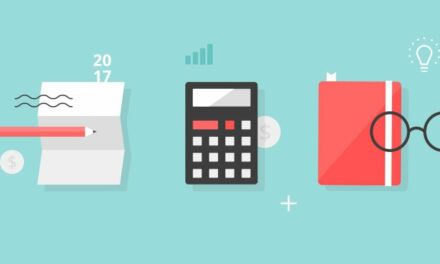Ok, so you’ve finally got your small business idea off the page and into the real world. You did it! Nice job.
But now that you’re consumed with providing your goods, building a brand and turning over some cash, you might have forgotten the lurking reality in the background – bookkeeping!
Bookkeeping may not be your forte, but don’t despair, with some basic knowledge, a bit of discipline, and some software tools, you can master the basics with ease.
In a nutshell, what’s bookkeeping?
Basic bookkeeping is about data entry. Data entry that records and reconciles.
By simply recording every financial transaction your business makes, including sales, receipts and expenses and then reconciling them, you’ve achieved basic bookkeeping.
These records will then form the basis of your financial figures (such as profit and loss) and allow you to complete compliance tasks with the ATO.
Recording
To do your own bookkeeping you’ll need to record everything. This was traditionally performed using physical logbooks, which originally gave rise to the term ‘bookkeeping’. These days, you can simply use accounting software to do this.
You’ll need to scrupulously record:
- sales
- expenses and purchases
- receipts
Reconciling
Once you have a set of accurate records, you’ll need to reconcile them.
Reconciliation is the act of cross-checking your sales or expense records against your bank statements.
By reconciling you can understand if there are any errors in your records, which can then be identified and rectified as rapidly as possible.
To take the sting out of this task, accounting software will easily reconcile for you.
So why do you need to do bookkeeping anyway?
By undertaking basic bookkeeping duties, you’ll reap numerous benefits, such as meeting your ATO-compliance responsibilities. By knowing your outgoings and incomings, including overdue invoices and expenses, you’ll also enjoy reliable financial records, from which you can deduce your profitability and cash flow to make informed business decisions, forecast with accuracy and budget with a high degree of clarity.
Let’s cut to the chase – how do you actually do bookkeeping in reality?
Now that you understand the point of bookkeeping, all you need to do is get yourself some accounting software and ideally schedule a session with a bookkeeper to be certain of how you should use it.
Accounting software is built to do bookkeeping. It automates much of the admin and grunt work and performs reconciliation on your behalf.
All you need to do is make sure you diligently input all your data and store all of your receipts.
Other bookkeeping duties for small business owners
In addition to recording and bank reconciliation, regular bookkeeping duties you’ll be tasked with also include:
- Reporting upon and chasing late invoice payments (also known as accounts receivable).
- Ensuring you pay your own outstanding invoices on time (accounts payable).
- Regular payroll admin, making sure you pay your staff accurately and on time, according to relevant awards and employee agreements.
6 tips to master small business bookkeeping!
Here are a few handy tips to keep in mind when tending to your business books and creating reports and accurate financial data:
- Maintain a specific time of the week for bookkeeping duties – this ensures you keep on top of it.
- Always keep your business purchases and income in separate business bank accounts. (If you’re seeking neat bookkeeping with no uncertainty or messiness never mix business transactions with personal cards or accounts.)
- Cultivate a thorough digital receipt storage system to help with daily bookkeeping, ATO compliance and tax returns.
- Always use proper cloud accounting software to complete regular bookkeeping tasks.
- Integrate your accounting software with other relevant solutions (Consider POS systems, eCommerce, receipt scanners and inventory.)
- Engage a professional bookkeeper to help you establish good bookkeeping workflows that you can maintain – even if you prefer doing your own books, when it comes to your tax returns and other ATO requirements, hiring professional help is particularly useful in ensuring compliance (especially as a new business owner.)







